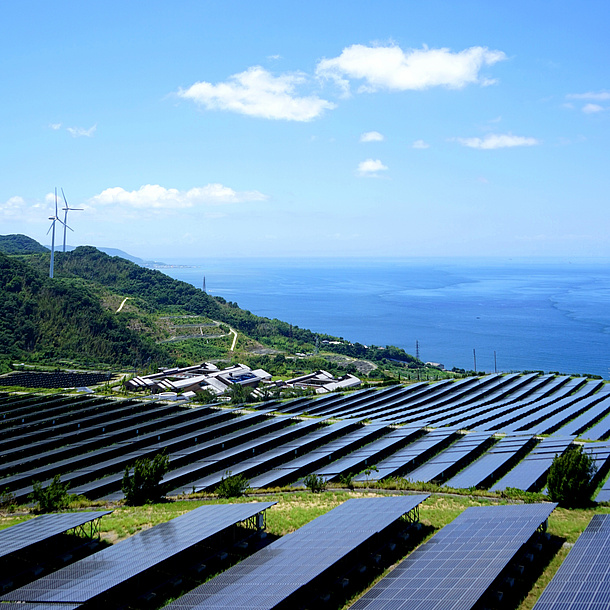Quick Facts
- Duration of study: 4 semesters
- ECTS credit points: 120
- Academic degree: Master of Science (MSc)
- Language of instruction: English
The Master's Programme
In the Master's Degree Programme Environmental Systems Sciences / Climate and Environmental Monitoring (ESS / CEM), you will increase your competences in different areas of environmental system sciences, placing a specific focus on environmental monitoring, geoscientific methods as well as energy and environmental technology.
You learn how to perform conceptual, mathematical, and computer-based system modelling and use state-of-the-art chemical and physical analysis methods.
You will broaden your knowledge of the origin, properties, and uses of inorganic raw materials and familiarise yourself with legal principles and regulations you will encounter in the environmental field.
The unique feature of this interdisciplinary NAWI Graz master's degree programme is the integration of systems sciences.
Focus Areas
In the following compulsory modules, you will gain fundamental knowledge of the field:
Systems Sciences: You will explore the subject area of data extraction, integration, and analysis in more detail and acquire knowledge about the resilience and sustainability of systems.
Climate Change and Geo-Systems: You will learn more about the Earth's climate system and its basic concepts, cycles, and budgetary principles. You will become familiar with physical phenomena that occur on Earth as well as how to measure and describe these. You will also learn systematic mineralogy and methods of procuring and using inorganic raw materials.
Environmental Monitoring: You will learn how to monitor geomorphological processes and apply different methods and techniques, such as airborne scanners, terrestrial laser scanners, or geoelectric systems. You will familiarise yourself with chemical and physical analytic tools and learn how to develop defined strategies for assessing environmental impacts.
Practice in Clean Technology and Sustainable Energy: You will complete a practical task, such as those encountered in the fields of environmental analysis or process control. You will begin by conducting a simulation analysis in the laboratory and recording the data. Next, you will perform modelling using software-supported tools. Finally, you will go on an excursion related to the given task.
Legal Basics for Environmental Management: You will acquire basic knowledge in the field of environmental law and become familiar with the structure and dynamics of environmental legislation. Moreover you will learn about the principles, structures, and objectives of REACH. The REACH concept encompasses the registration, evaluation, authorisation, and restrictions of substances.
Interdisciplinary Traineeship: Students define a project with a specific topic, such as the topic “Cement industry and CO2 emissions” and carry out this project under supervision and in teams.
Collaborations and Networks
A close cooperation that facilitates exchange with the Wegener Center for Climate and Global Change plays a major role in the master's degree programme. Lectures, guest lectures, interdisciplinary traineeships, joint research projects, and networking are supported by this cooperation. Students also benefit from the interdisciplinary contact to the geosciences.
In cooperation with partners, relevant traineeships are offered (e.g. at KELAG-Kärntner Elektrizitäts-Aktiengesellschaft). This gives students a chance to gain practical experience and prepares them optimally to begin their career in this field.
The Coordination Office for Environmental Sciences offers a platform with information on various topics such as interdisciplinary internships. The Student Representatives and Interest Group for Environmental System Sciences (USW) is actively involved in promoting further course development and informal exchange among students.
Admission
The prerequisite for admission is a completed bachelor’s degree in a relevant subject (see curriculum).
Additionally, you need to provide evidence of competence in the English language.
1. Admission Procedure
For the academic year 2025/26 there will be no admission procedure.
You can go directly to the next step (2. Admission).
2. Admission
- Admission and deadlines for international students
- Admission and deadlines for Austrian students who are registering to study at TU Graz for the first time
If you have already been admitted to a degree programme at TU Graz, or have studied at TU Graz before, please come to the Registrar's Office in person to complete your admission during the admission period.
Fragen zur Zulassung?
Contact study@tugraz.at
Career Prospects
Professional Fields
Graduates are in great demand in the private sector, public service or NGOs and work in the following areas:
- Evaluation and impact assessment of aspects of climate change and climate protection measures.
- Development of strategies and measures for climate protection, climate change adaptation and loss and damage with regard to coping with climate change and its consequences.
- Development, monitoring and optimisation of resource and energy-saving technologies.
- Development of sustainable products, processes and services.
- Development and implementation of strategies and processes for sustainable use of energy, raw materials, materials, waste and residual materials.
- Environmental analysis, environmental monitoring and environmental protection.
- Monitoring of geological and geoscientific projects.
- Consulting and support of environmental protection institutions.
- Implementation of environmental management.
- Research and teaching at university level.




